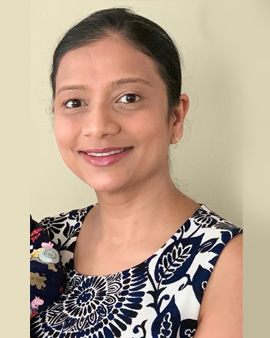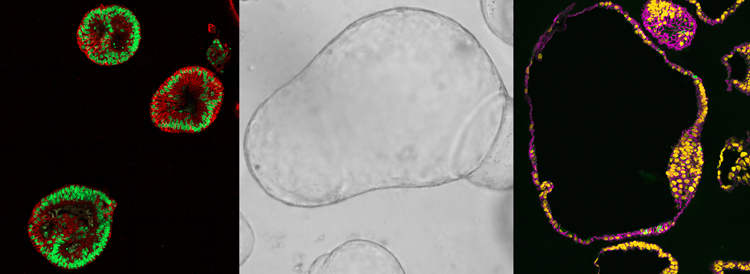Meet Ridhdhi Desai, PhD

The Department of Biochemistry & Molecular Biology is excited to welcome Ridhdhi Desai, PhD, as faculty at Drexel University College of Medicine.
Prior to joining Drexel, Dr. Desai was a research fellow at Joslin Diabetes Center and postdoctoral fellow at Beth Israel Deaconess Medical Center at Harvard Medical School, where she focused on investigating the mechanisms underlying initiation and progression of precursor lesions in pancreatic cancer.
Dr. Desai earned her undergraduate and doctoral degrees in biomedical sciences at the University of Toronto in Toronto, Canada. Her doctoral dissertation focused on investigating the functional analysis of α-catenin in cadherin-mediated cell adhesion during Drosophila development.
At Drexel, Dr. Desai’s lab uses human stem cell derived organoid models to understand pancreatic cancer development. With a combination of cell biological, proteomic, genomic and in vivo approaches, she aims to generate models of precancerous lesions to understand how they progress towards pancreatic cancer. Dr. Desai uses oncogenic ductal and acinar pancreatic organoids to identify mechanisms of proliferation and progression with a focus on the oncogenic form of the alpha subunit of G-protein (Gαs) or GNAS mutation.
Dr. Desai helped in generating pancreatic ductal and acinar organoids from human stem cells for modeling development and diseases of the pancreas and showed that ductal-specific expression of oncogenic GNAS, recapitulates many features observed in IPMN patients, such as cystic growth and secretion of mucins. In the ductal organoids, oncogenic GNAS induced cell proliferation in a PKA-independent pathway. However, surprisingly, oncogenic GNAS expression in acinar organoids results in a modest increase in cell proliferation through a PKA-dependent mechanism. For the first time, these observations demonstrate that oncogenic GNAS produces a cell-type-specific phenotype in human ductal and acinar epithelia.

Over the course of her career, Dr. Desai has also authored multiple peer-reviewed articles in journals such as Cell Stem Cell, Nature Cell Biology, EMBO Journal and Journal of Cell Science.
She is also the recipient of the K22 pathway to independence grant award through the NIH National Cancer Institute and has received several honors and awards during her postdoctoral work. These include the Ruth L. Kirschstein Postdoctoral National Research Award (F32), Young Canadian Cell Biologist of the Year from ASCB, and the Yoshio Masui Prize-Development, Molecular & Cellular Biology, University of Toronto, to name a few.
Dr. Desai is also an experienced mentor as she has an extensive history of mentoring that range from high school to graduate students.
Back to Top